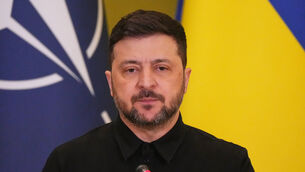'Mad Vlad' bounces back in Russian elections
The court jester of Russian politics, Vladimir Zhirinovksy, led his nationalist party to a surprisingly strong comeback in the parliamentary elections with his unique mix of bad-boy behaviour, populist politicking – and support for the Kremlin.
Zhirinovsky’s misnamed Liberal Democratic Party more than doubled its share of the votes compared to the 1999 election, according to preliminary results.














